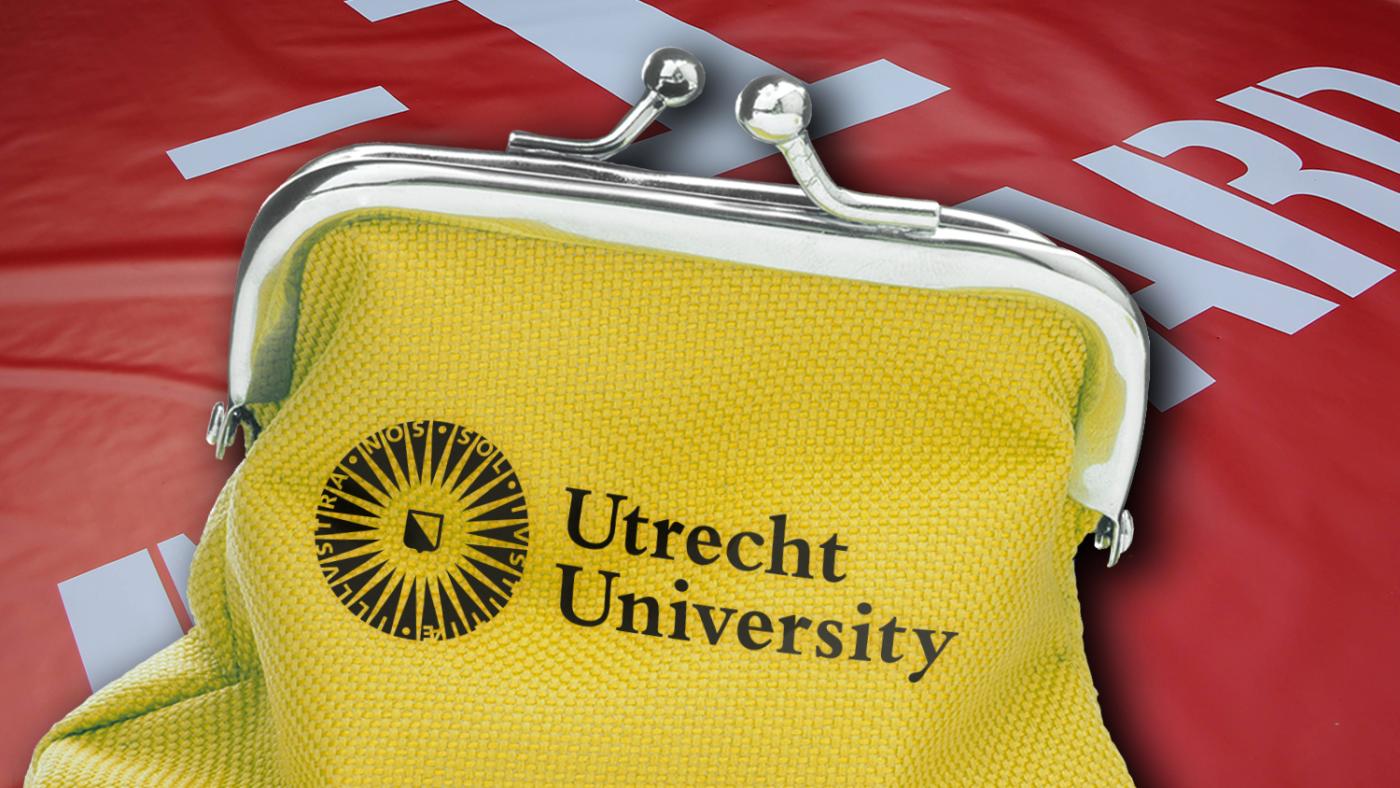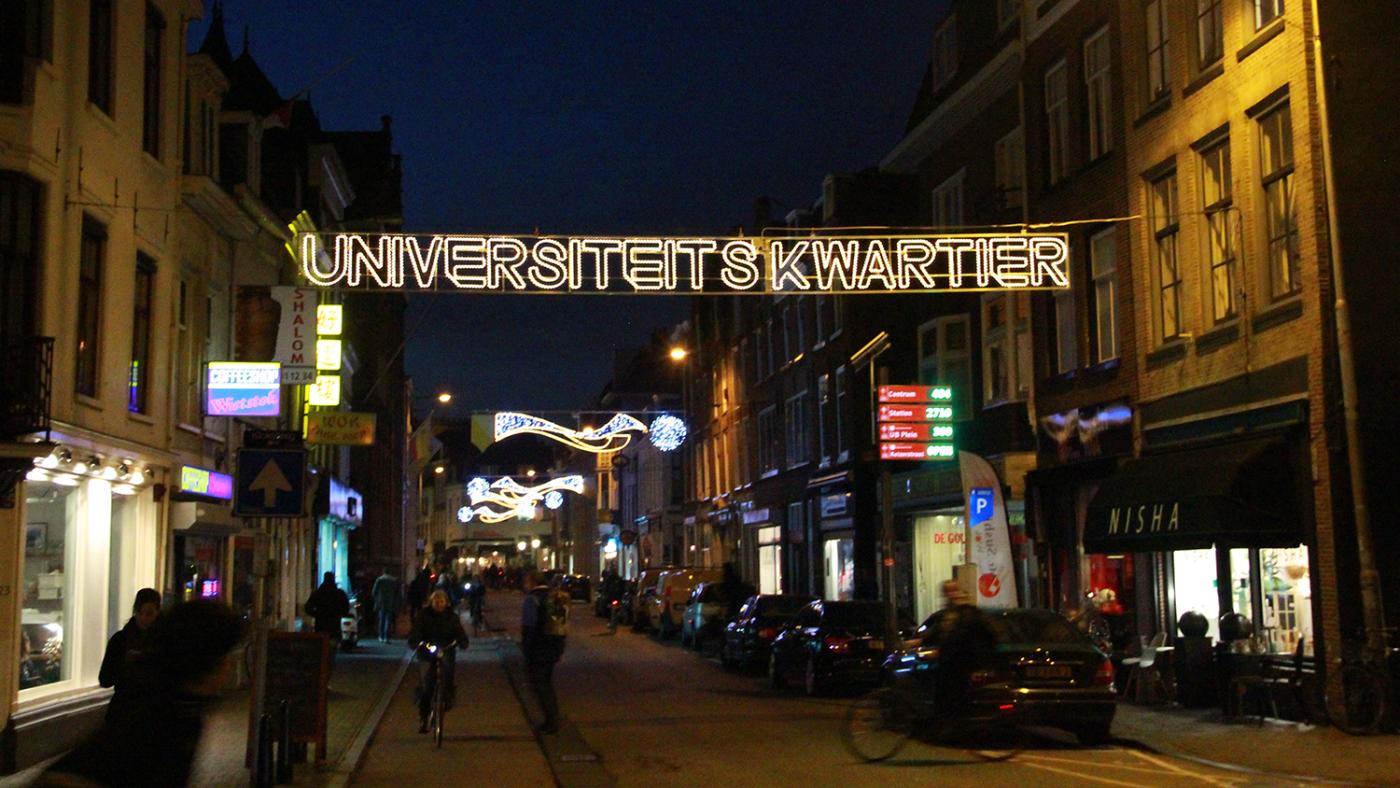From shrinking workspaces to paperless working
Less, less, less: How UU intends to reduce its spending

The government’s intention to considerably cut the higher education budget has been known since the spring of 2024. Utrecht University immediately anticipated the bad news and called on everyone to devise austerity plans. These efforts resulted in the Financial Sustainability Plan 2025-2027 (document accessible only to those with a Solis ID), which indicates where the university will reduce its budget and where investments remain necessary.
The biggest cuts will hit the Faculty of Humanities and the University Corporate Offices. Both are already working on austerity plans. The ambitions for the Strategic Housing Plan will also have to be scaled down, though investments remain necessary as the university will renovate the Van Unnik and Kruyt buildings and build a new building for the Faculty of Veterinary Medicine. These projects aim to make the university more sustainable. The university should unveil the austerity plans in this regard soon.
The Executive Board urges faculties and departments to save where they can. It is also obliging faculties to keep reserves at a minimum (Solis ID required) to cope with calamities.
Shrinking
UU still needs to figure out how to reduce university-wide spending, namely the money necessary for initiatives that involve the entire university community. The austerity measures in this regard will be implemented this year and next.
Some of the plans for this year are already known, such as the termination of honours teaching at the faculty level and the reduced opening hours in various university buildings – two very controversial measures.
In addition, the university has announced that it will rely less on contractors and self-employed professionals as they form a significant expense in the university's payroll. These external professionals are often deployed for specific projects or in positions for which no employee could be found, which happens often in the IT department and the finance directorate. A contractor was recently hired to audit the financial flows of the University Corporate Offices. Moreover, the IT department will go through the applications used by the university to see if two or more apps are serving roughly the same purpose. After all, UU doesn't only spend money when it buys an application. An employee must also be charged with providing support for its use.
The sustainability plans also include initiatives such as saving on business travel. The university will evaluate whether it is necessary to travel – sometimes, an online meeting will do. Furthermore, the university wants to calculate its exact overhead costs. For example, when a research group obtains a grant, the University Corporate Offices allocate 10 percent of it to pay for costs such as HR and computer programmes. The evaluation should elucidate whether 10 per cent is too much or too little.
Another proposal is to encourage employees to take a performance-based contract. This is a contract for employees from scale 11 onwards. It is based on results, not on time, so employees under this type of contract do not get any vacation hours. Currently, many employees reach the end of the year without using all the hours they are entitled to. That's money UU cannot spend.

Fewer courses
Other options will be explored for 2026, such as reducing the number of courses on offer. Certain courses could be merged or simply disappear, which would result in a reduction in the number of lecturers. This would also reduce the university's need for teaching spaces, especially if the measure is combined with more efficient scheduling. UU has been working on this for quite a while. One suggestion is to schedule lectures between 5:00 pm and 7:00 pm more often as well as use the timeslot after that. This way, the university would not need additional classrooms and the teaching space could perhaps be divested.
Office spaces are also supposed to be reduced through a heavier reliance on "activity-related working": employees would no longer have designated desks as almost all workplaces would be flexible. This would allow UU to save money on rent and sell some of its premises. Even if it doesn't sell anything, it could still save money on electricity, cleaning and staff costs.
Next year, UU also hopes to cut back on IT, reducing things like storage space for digital data. "Not everything needs to be stored forever", the university's vice-president, Margot van der Starre, once stated in a University Council committee. In so doing, the university hopes to need even less storage space.
What's more, UU wants to reduce its contribution to the alliance between UMCU and the universities of Wageningen and Eindhoven by 5 per cent. Further ideas include working without paper, collaborating more efficiently in operations, letting certain programmes expire like the Equality, Diversity & Inclusion Office, focusing on Education for Professionals, and investigating further possibilities to make money as an institution.
The document is set to be discussed with the University Council. Many of these measures are but proposals. The university still needs to verify if some of them are feasible or even desirable. UU hopes to know more about that this spring.